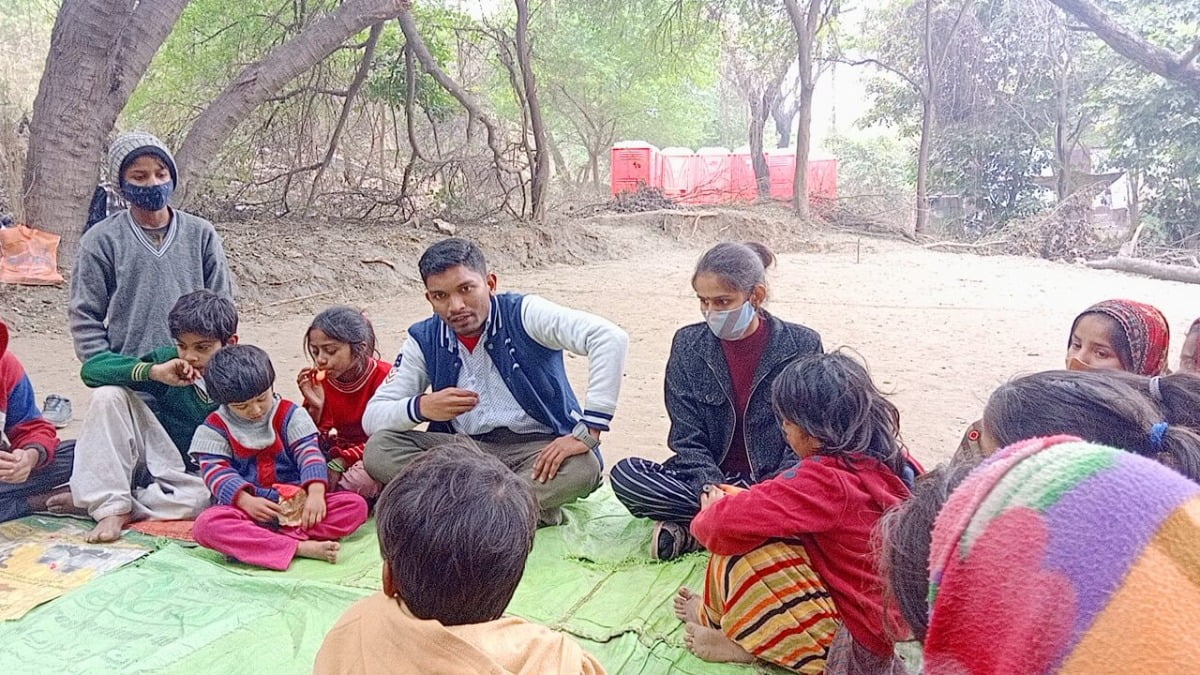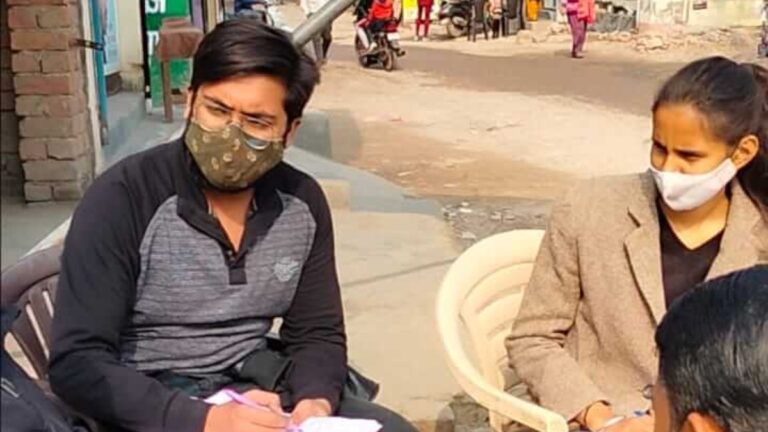Ankush Rana is a Fellow at Youth Leaders for Clear Air Fellowship by Clean Air Fund in the collaboration with Pravah.
Here, Ankush is sharing his story of being a part of this prestigious fellowship and designing and executing his unique Social Action Project to address Delhi’s acute air pollution problem.
His efforts are actively bringing substantive changes in the lives of the residents of Delhi and empowering them to take meaningful action towards a cleaner, greener Delhi.
Go on and read how his story inspires you(th) to take action because the time is now!
How did you come to know about the fellowship? What inspired you to take it up?
I came to know about the fellowship through a friend who was already a part of Pravah in some of their programmes.
My deepest desire to work for social change and environment inspired me. I feel motivated when we talk about leadership and ownership with respect to our environment because we are the ones that make the society, exploit nature, and if we are ready to take the responsibility for the same, then it itself is my inspiration.
What is the most pressing concern with respect to Air Pollution in Delhi?
The most pressing concern with respect to Air Pollution in Delhi is public health. People are badly affected due to it and patients have it worse. Some critical cases have to migrate because the environment becomes deadly for them at times. I feel this should not be the new normal and must be worked on.
What problems does your project solve? Briefly describe your efforts to address the issue.
My social action project works on two aspects:
- Awareness through social media – I make video briefings about the concerning issues related to air pollution, share stories, and help people understand some sustainable solutions. These videos are shared on my Instagram handle.
- Awareness for women empowerment – I feel that empowering women by making them understand the concept of organic fertilizer and even helping and guiding them in the process, is a great idea of awareness in the underprivileged community. I have worked in this arena and helped the women understand that it is not only a huge step towards saving the environment but also helpful because it is a source of income for them.
I also organized a cloth donation drive as a part of this project, because second-hand clothes at times contribute to the non-biodegradable waste due to which the waste management becomes improper.
Which SDG(s) is your project directly addressing?
- SDG 11 / Waste Management
What motivates you to work towards the long term sustainability of the environment?
Poor living conditions for the underprivileged community make them prone to a whole lot of harm with respect to the polluted environment.
I feel if the environment becomes sustainable, the ones with no resources shall have fewer things to worry about.
What impact have you affected or plan to achieve?
I have mobilized a lot of people via my videos. I have taught under-privileged children and the women of the same community about air pollution and the harmful effects of air pollution. I have interacted with a lot of people and got to know what the local area public thinks about the cause.
What challenges did you face during the journey? How did you overcome them?
People were not always supportive. It was difficult to reach out to the women as they being housewives, had a little amount of time to spare for a discussion. But my motivation to work for the environment always inspired me and helped me try again.
What are the skills and values that you acquired during the fellowship?
- Leadership
- Ownership
- Teamwork
- Cooperation
- Empathy
How do you plan to sustain your project further?
I plan to make more social media content to mobilize and aware people and educate children about the cause.
How can people reading this contribute to your project or cause?
Change starts with ourselves, so to contribute to my project, one shall contribute to saving the environment at their own level. Developing some nature-friendly habits like car-pooling, saving electricity, minimum use of Air Conditioning (ACs) and Refrigerators, having a small garden, etc.
How can others follow in your footsteps towards sustainability?
Do not differentiate between working for a cause and your personal/ professional life. Because we are a part of nature and not nature is ours. Healthy habits for our environment shall always be in practice and not just for the sake of a contribution.
Anything else would you like to say to people who’ll be reading your story?
It has been rightly saying, “We have not inherited this earth from our forefathers but borrowed it from our children.”
We at Young Influx would like to take this opportunity to thank Ankush for taking a leap of faith and sharing his impeccable story with us. We appreciate his efforts and are pleased to bring out his story to a climate-conscious audience.
And hello, dear readers, we welcome you to explore our platform. Give yourself a chance to be illuminated by a varied range of stories of other young people. Read more such stories here!




